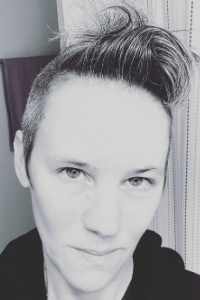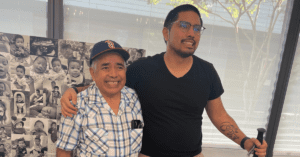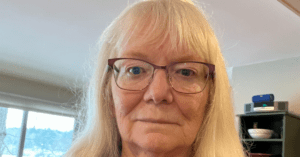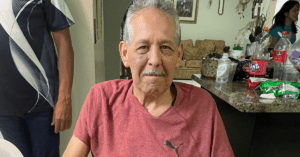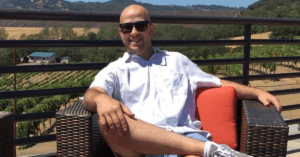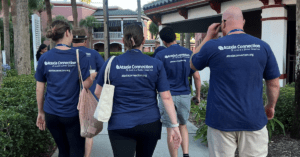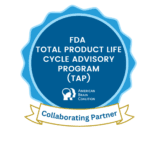My name is Amanda Simmons and I was diagnosed with SCA6 in 2018 just after my 45th birthday. I inherited from my father. I am the youngest of five children and as far as we know I am the only one with SCA6, which I very much hope is true because I am also the only one who doesn’t have children. If the SCA6 buck stops with me in our family I’m happy to carry the burden, stumbles and all.
My SCA 6 Story
To simply say I have always been a very active person would be an understatement. I’ve ridden my bike from SF to LA, participated in a 24 hour spin class, ran a marathon in Hawaii, raced with a cycling team, ran countless half marathons, rock climbed, CrossFitted…you get the point. In 2007 I decided to turn my love of fitness and nutrition into a full time career and left a well paying executive sales position with benefits, vacation time, and free snacks to open my own business. I had one client at the time. Ten years later I had built a strong client base and had the studio of my dreams. Unfortunately, my life was about to change drastically. Actually, it had been changing and deep down I knew what was happening.
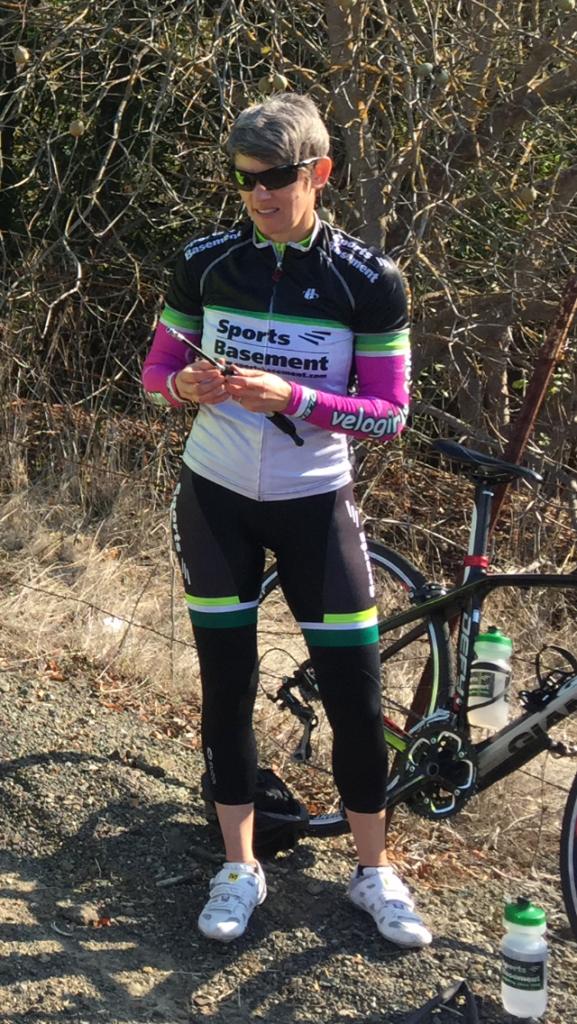
I started to notice things that weren’t really on my radar for SCA6. My parents had somewhat downplayed what my father was going through since he was about 70 when his symptoms started. They said we kids had nothing to worry about and all the research I had done basically said SCA6 was a balance and speech issue. For years I had been doing things that demanded high levels of strength and coordination, in fact, as a child I was known (teased actually) for riding a unicycle to school. So when trying to write at night my eyes started shifting rapidly side to side I just thought I was tired. Tired or exhausted was a word that seemed to creep into everything I did. Workouts that normally wouldn’t even break a sweat started to cause major fatigue and my recovery times were getting longer.
One day on a run it was as if I was in a video game, my vision was bobbing and I couldn’t look to the horizon, I tried to focus on the stop signs ahead and could not. At the same time my limbs felt like they were going in a million directions without me having any control over them and my heart rate was off the charts. The other thing of note was my mood and increasing inability to communicate my feelings and control my frustrations, small things that I would normally shrug off were getting under my skin. For transparency I will say I have always run a little hot in the temper department but this felt different, it was confusing and concerning.
Getting a Diagnosis
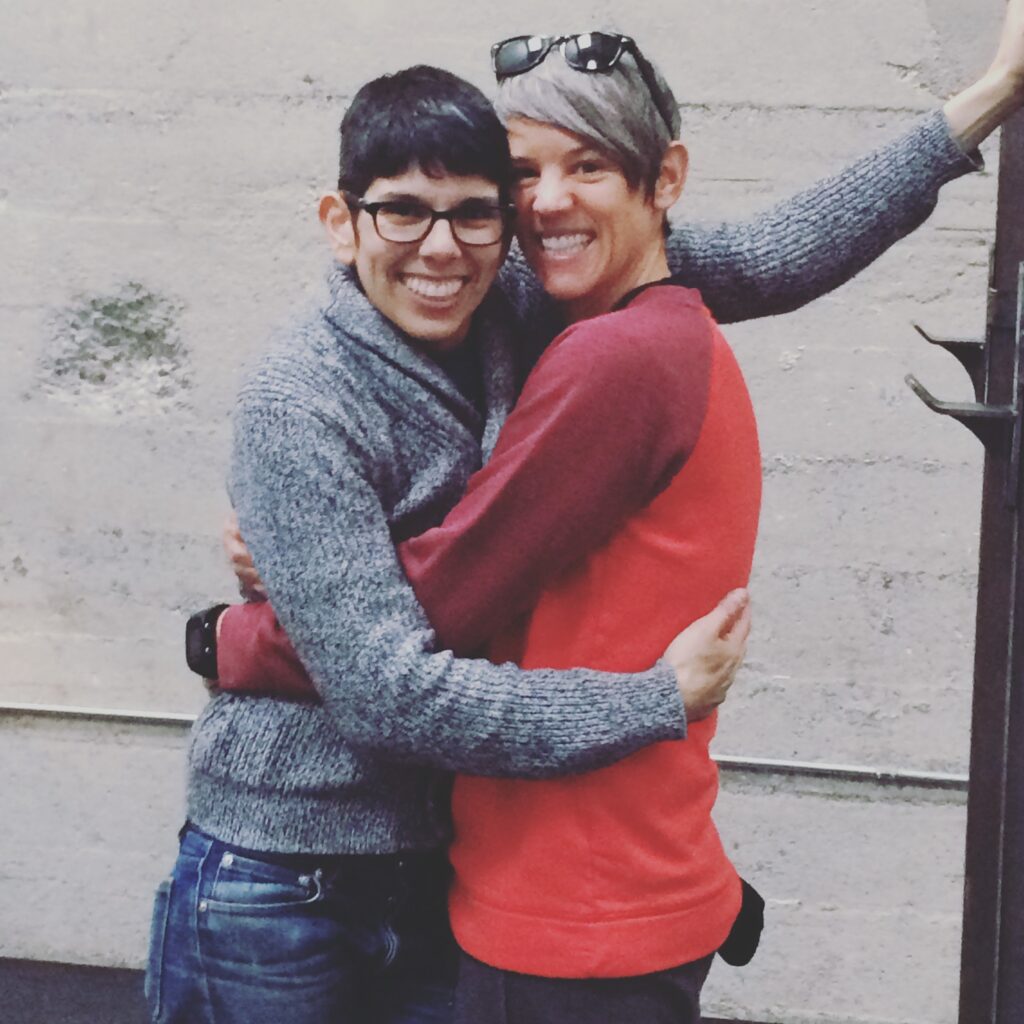
I decided it was time to get tested for SCA6 so I contacted my GP and got set up with a genetic counselor to start the process. Like many things in life, nothing can prepare you for something like this. I will never forget the day the genetic counselor called with my results. When she said the test came back positive, time literally felt like it stopped. I sobbed instantly. Thankfully my wife was and has been by my side with loving, kindness and support. I would not be able to handle any of this without her.
It has been two years, a couple bad falls, a frozen shoulder, my mothers death, the closing of my business, and a pandemic since my diagnosis. Rough doesn’t begin to describe the last two years. Devastating might be more accurate. Nonetheless, I am grateful. I have lost the ability to do so many things I love. My whole existence revolved around movement and pushing myself beyond expectations. In many ways I took those abilities for granted and assumed they were a given. Today I appreciate being able to walk, get on my spin bike, take easy hikes with my family, and swallow (mostly).
Living with SCA6
As expected my symptoms are advancing and new ones have revealed themselves. For instance, cervical dystonia and peripheral neuropathy are two things I had not anticipated. This disease is not simple to understand nor is it textbook. There are nuanced differences from person to person. Our experiences will not all look alike, which is why I am so thankful for NAF and all they strive to accomplish in regards to research. We all need to tell our stories so that the experts can better understand what they are dealing with in hopes of helping future generations with SCA’s. It is not easy for many of us to share our stories. It is painful, but information is power. We need all we can get in order to move forward and hopefully find a way to cure SCA or at the very least better manage the inevitable progression we all fear.
In Solidarity,
Amanda Simmons
Read Other Member Stories
Resources for Living with Ataxia
- Find an Ataxia support group on the NAF event calendar.
- Find research studies and clinical trials that are recruiting participants on NAF’s Help Develop New Treatments page.
- Watch Ataxia webinars hosted by experts.
- Read the latest Ataxia news on NAF’s blog.
- Find a neurologist or specialty clinic in your area.
- Support NAF’s work in your own way – visit our Ways to Give page for ideas.


